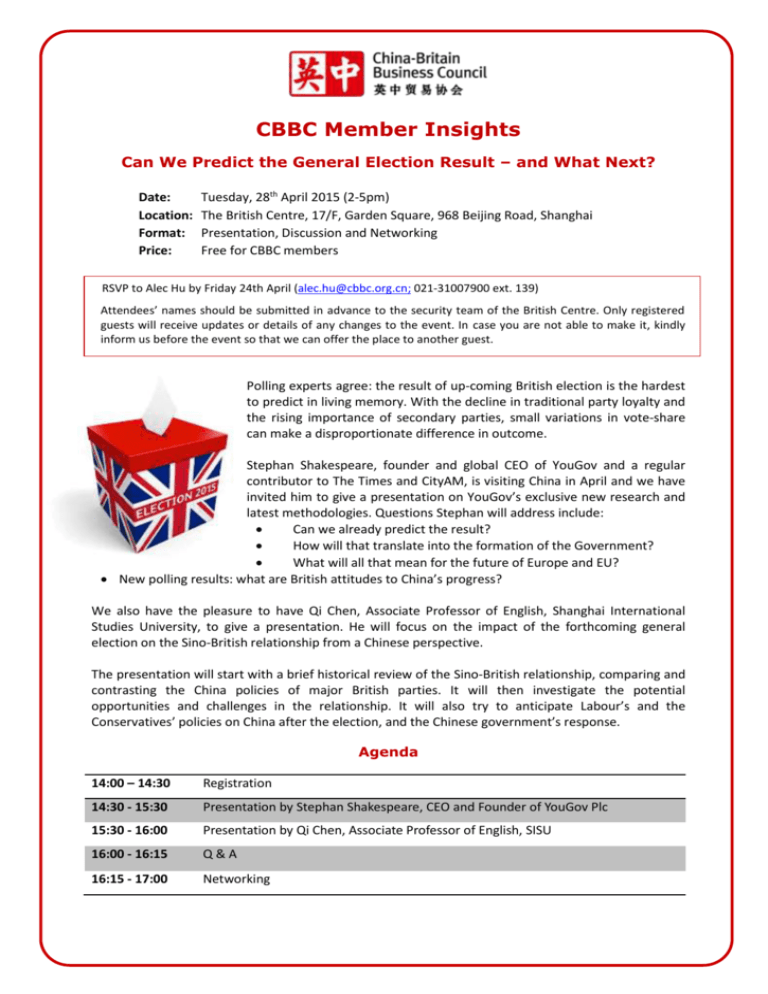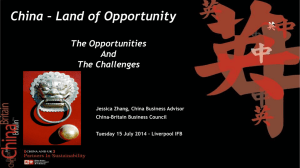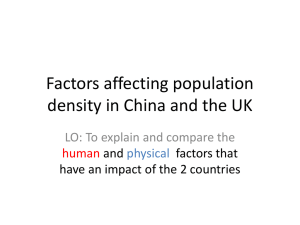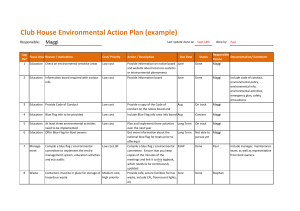General Election - British Chamber of Commerce in China
advertisement

CBBC Member Insights Can We Predict the General Election Result – and What Next? Date: Location: Format: Price: Tuesday, 28th April 2015 (2-5pm) The British Centre, 17/F, Garden Square, 968 Beijing Road, Shanghai Presentation, Discussion and Networking Free for CBBC members RSVP to Alec Hu by Friday 24th April (alec.hu@cbbc.org.cn; 021-31007900 ext. 139) Attendees’ names should be submitted in advance to the security team of the British Centre. Only registered guests will receive updates or details of any changes to the event. In case you are not able to make it, kindly inform us before the event so that we can offer the place to another guest. Polling experts agree: the result of up-coming British election is the hardest to predict in living memory. With the decline in traditional party loyalty and the rising importance of secondary parties, small variations in vote-share can make a disproportionate difference in outcome. Stephan Shakespeare, founder and global CEO of YouGov and a regular contributor to The Times and CityAM, is visiting China in April and we have invited him to give a presentation on YouGov’s exclusive new research and latest methodologies. Questions Stephan will address include: Can we already predict the result? How will that translate into the formation of the Government? What will all that mean for the future of Europe and EU? New polling results: what are British attitudes to China’s progress? We also have the pleasure to have Qi Chen, Associate Professor of English, Shanghai International Studies University, to give a presentation. He will focus on the impact of the forthcoming general election on the Sino-British relationship from a Chinese perspective. The presentation will start with a brief historical review of the Sino-British relationship, comparing and contrasting the China policies of major British parties. It will then investigate the potential opportunities and challenges in the relationship. It will also try to anticipate Labour’s and the Conservatives’ policies on China after the election, and the Chinese government’s response. Agenda 14:00 – 14:30 Registration 14:30 - 15:30 Presentation by Stephan Shakespeare, CEO and Founder of YouGov Plc 15:30 - 16:00 Presentation by Qi Chen, Associate Professor of English, SISU 16:00 - 16:15 Q&A 16:15 - 17:00 Networking Profiles of the Speakers Stephan Shakespeare, CEO, YouGov plc Stephan founded YouGov in 2000. One of the pioneers of Internet research, Stephan has been the driving force behind YouGov’s innovation-led strategy. He also founded PoliticsHome.com. He was chair of the Data Strategy Board for the Department for Business, Innovation and Skills 2012-2013 and led the Shakespeare Review of Public Sector Information. He is currently a member of the Government’s Public Sector Transparency Board and a trustee of the National Portrait Gallery. He also sits on the Advisory Board of the Oxford-Man Institute of Quantitative Finance. He was named one of the Top 20 Most Influential in Politics in the Debrett’s 500 2015. Stephan has an MA from Oxford University. Qi Chen, Associate Professor of English, SISU Dr Qi Chen obtained his MA in Comparative Literature from Fudan University and PhD in English from Royal Holloway University of London with an ORS and Thomas Holloway Scholarship. He is an associate professor in English at the Centre for British Studies, Shanghai International Studies University. He received the honourable title of ‘Pu Jiang Scholar’ from the Education Foundation of Shanghai government. He has membership in the Chinese Association of British History, the Association of European Studies at Chinese Academy of Social Sciences, and the Shanghai Association of International Studies. He also serves as a consultant for the Development Research Centre of Shanghai Government. His research interest covers British cultural policy, creative industries, and the Sino-British cultural relationship. He is currently doing a project on ‘British national image in the postcolonial context’.



